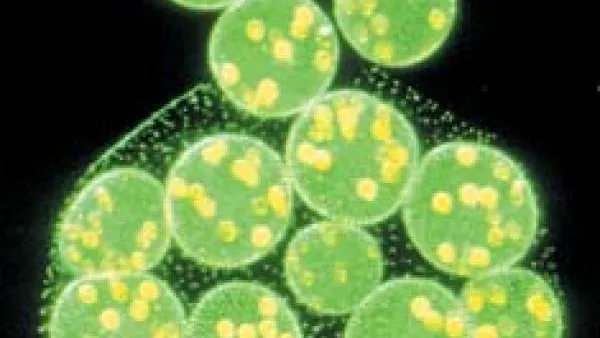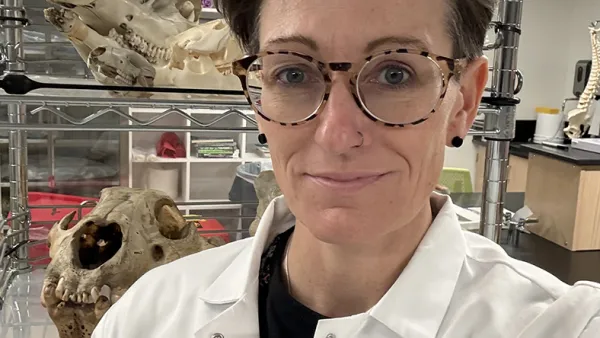Shan Wang, a senior majoring in both Global Cultural Studies and Biology, receives the 2024 Harrison D. Stalker Award from the Department of Biology in Arts & Sciences at Washington University in St. Louis

The Harrison D. Stalker Award is given annually to a graduating biology major whose undergraduate career combines outstanding scientific scholarship with significant contributions in the arts and humanities. The award honors the late Harrison D. Stalker, a renowned evolutionary biologist and world-class photographer.
Wang completed research in the Mallott Lab examining how pollutant and pathogen exposure impact human gut microbiomes. Her thesis in Global Studies “Que nos Tomen en Cuenta”: Qualitative Investigations into Healthcare Language Access examines how language barriers limit access to medical care.
In her nomination letter, Assistant Professor Liz Mallott wrote, “Not only has Shan completed high quality independent research that could have been used to write a senior thesis in Biology, she also carried out a perhaps more impressive independent project for her senior thesis in Global Studies. After studying abroad in Chile, Shan is fluent in Spanish, and used that skill to integrate her interests in medicine, health disparities, and Latin American culture. Her thesis seamlessly combines research approaches from the humanities, and provides actionable recommendations for policy changes at local hospitals that should improve access to translation services. Shan sees how combining approaches from different arts and sciences disciplines is key to solving societal challenges. She is a true liberal arts scholar.”
Wang says, “I am deeply honored to receive the Harrison D. Stalker Award. I would like to thank Dr. Liz Mallott, Dr. Julia López, Dr. Steven Hirsch, and all the mentors who have guided and supported my multidisciplinary research into social and environmental inequities. I hope that my work will help empower communities to advocate for justice, from language services in healthcare institutions to flood control in vulnerable regions.”
Wang will receive a prize and formal acknowledgement at a celebration of biology honors and research emphasis students in May.



